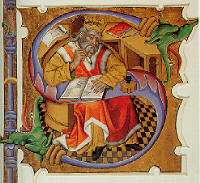
Foundations of Modern Law: Final Examination
Ken Pennington Due: December 19, 1997.

1. Describe the establishment of the Ius commune as an educational system and as a pan-European legal system. Indicate how the jurists of the Ius commune influenced secular legal systems (Iura propria). Discuss the use of the Ius commune by jurists in the medieval and early modern periods and how they created legal norms and rights. Give at least four examples of the norms that they created (Do not discuss procedural norms; save those for question 6; use Tierney). Examine each norm to see whether it is absolute or not. How does the work and influence of the medieval and early modern jurists differ from the role of Roman jurists?
2. As the Ius commune became central in European legal thought, the jurists who studied it were forced to examine how legislation could be established and what the relationship between law, rulers, and the ruled was. Using the first twenty distinctions of his Decretum describe Gratian=s first attempt to formulate a doctrine of law and legislative authority in the Ius commune. Outline the progress of legislative doctrine from "all law is custom" to "all law resides in the will of the prince." Discuss the practice of legislation in twelfth-century England and compare English practice to Gratian's theory.
3. Describe the compilation and codification of law from 1100 to 1900. What were the most significant developments in the evolution of a concept of codification? Did this period produce codes like Justinian's? If not, why? Compare the purpose of codification in the sixth, thirteenth, and eighteenth centuries.
4. Modes of proof took two different roads after 1100. As ordeals became more suspect and then obsolete after 1215, one road followed the procedure of Roman law, the "Cognitio extraordinaria," the other developed modes of proofs based on Germanic conceptions and practices. Discuss the reasons why two different systems of proof were instituted in European legal systems. Analyze the rules and features of canonical procedure from 1200-1500. Was it a fair system of procedure?
5. "Due process of law" is a key concept in American legal procedure. Primarily due process protects the rights of the defendant against arbitrary treatment by the state. Discuss the origins of due process in the Ius commune and sketch the evolution of due process until the end of the nineteenth century. Analyze the elements of due process and explain which parts of due process are absolute rights and which are not. Explain why some rights of due process are not absolute in American law.
6. Discuss the three themes of this course, codification and legislation, procedure, and the role of jurists, in modern common and civil law. Point out to what extent the history of law helps us to understand how modern common and civil law evolved. Explain how this course deepened your understanding of Merryman.
Write an essay covering each of these points. It should be typed, double-spaced, and proofread. The margins of the esaay should be one inch on each side and the font size should be 12 point. Be sure to paginate the final typescript. In the essay, each new section should have a number corresponding to the above sections.